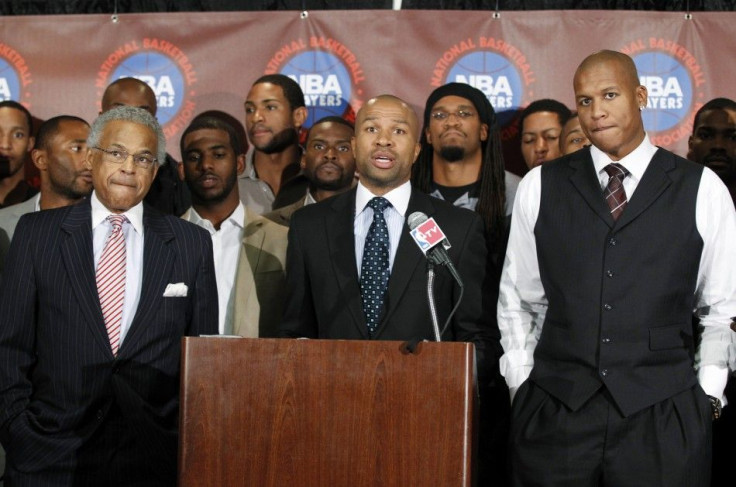NBA Union Showing Signs of Compromise That Could End Lockout

Anyone and everyone who is a basketball fan may soon be able to finally breathe that long sigh of relief, but don't hold your breath for too long.
Some compromise on the NBA lockout did come to the forefront Tuesday after the player's union conveyed in a meeting that they would be willing to accept the owners' proposed 50-50 split of basketball-related income, but only with concessions on certain issues. The most important of those include luxury tax penalties and the rules for those teams that pay the tax, according to ESPN The Magazine's Ric Bucher.
The NBA is basically seeking to limit the spending options of teams that exceed the luxury tax threshold in the interests of greater competitive balance. The more one team exceeds the luxury tax, the more it would have to pay back to the league, which then would redistribute the money among non-tax-paying teams and teams that don't overwhelmingly exceed. As a result, the teams mandated to pay the tax that also exceed the threshold would have less chance to sign big-name free agents.
With that said, the player's union wants all teams to be options for free agents, not just those that don't exceed the luxury tax threshold. According to Si.com, both the players and owners have agreed, in part, on a punitive tax for teams that exceed the limit. For every dollar, up to $5 million, that a team goes over the limit, they would pay a $1.50 tax over the previous collective bargaining agreement, in which they would only pay dollar for dollar. Moreover, the two sides agreed that the tax will incrementally rise by every $5 million.
What is still in dispute about the luxury tax is that the owners have proposed that if a team goes into the luxury tax more than three out of every five years, it will be hit with an extra $1 penalty tax in addition to the $1.50 penalty. And, even if a team breaks the tax threshold by just $1, it automatically forfeits its share of the tax money that gets redistributed. Put simply, only non-tax-paying teams get any money back.
The union opposes both those provisions because they discourage teams from even going into the luxury tax.
The luxury tax, besides the split of BRI, is a truly crucial component of the new contract because it would also affect the mid-level exception and sign-and-trade deals.
According to Si.com, the two sides have agreed to reduce the mid-level exception from $5.8 million to $5 million. However, the NBA wants any team that uses the mid-level to be limited to three-year deals. If a team is paying the luxury tax, the NBA's proposal calls for that team to lose the full mid-level and be limited to a smaller, $2.5 million exception. The players believe this both hurts the middle-rank teams and discourages teams from spending into the luxury tax.
As far as the sign-and-trades, the owners say any team exceeding the luxury tax cannot go through with such deals, which players are against.
In terms of the 50-50 split of BRI, the player's union has gradually reduced its demand from 53 percent to 52.5 percent and finally to 51 percent on Sunday. As recently as last week, union executive director Billy Hunter remained stridently opposed to a 50-50 deal.
The league's current proposal, on the table since Sunday, calls for the players to receive between 49 percent and 51 percent of basketball-related income. The players want the 51 percent, but with a concession for the owners: 50 percent would be accepted like the owners wanted all along, but with a cherry on top: the extra 1 percent would go to player's pension funds and other benefits.
Now, it seems as though the owners will have to play ball a little bit harder. Union president Derek Fisher, executive director Billy Hunter and the rest of the players won't budge until the owners meet their demands. Yet, the owners, too, have made it known that they won't budge either. Stern has said that if players don't take the owners' deal by 5 p.m. Wednesday, the next offer will call for salary rollbacks, a 53-47 revenue split in the owners' favor and essentially a hard salary cap.
Still, as union leaders made their strategic move Tuesday, a dissident faction of players was proceeding with a petition drive that could force a vote on decertifying the union a la the NFL, a sign that some feel the owners won't make the concessions players demanded.
They want to get back to work, said Fisher of the players. They want us to try and get a deal done. But they don't want us to be shortsighted and get a deal done just to say we got a deal done today, and regret it 5, 10, 15 years from now.
© Copyright IBTimes 2024. All rights reserved.











